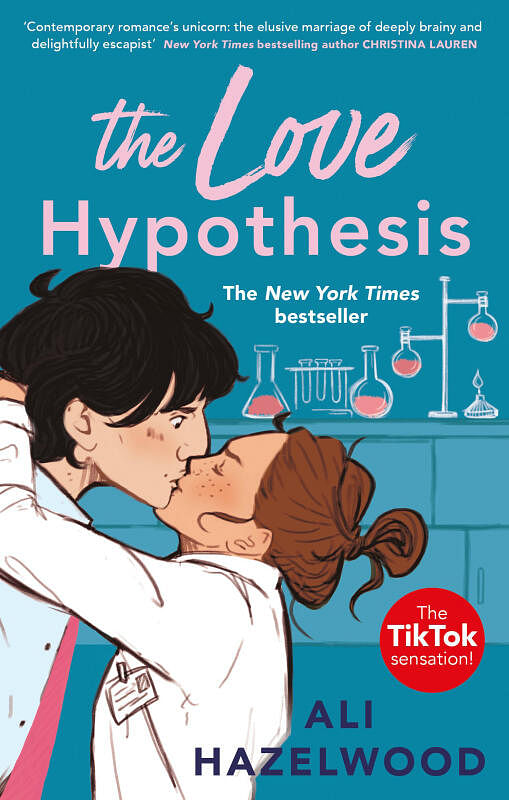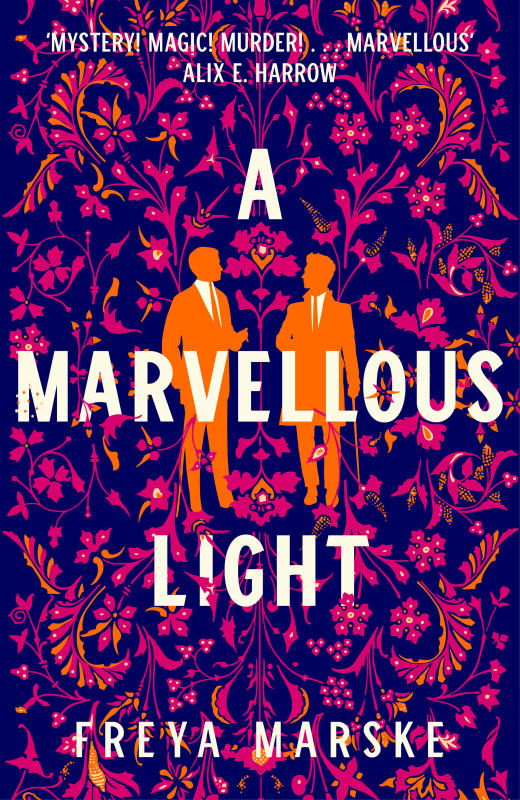SINGAPORE - By day, Ali Hazelwood is a neuroscientist. By night, she writes Star Wars fan fiction.
Fan fiction is writing based on pre-existing works such as books, films and television shows. It became an outlet for Hazelwood, who channelled her PhD stress into transposing Star Wars characters to an alternate setting she knew well - science academia.
"I wanted to make a bunch of inside jokes about what it is like to be a woman in Stem (science, technology, engineering and mathematics)," she quips over a Zoom call from the United States. "And also write about fake dating."
She gained a following on fan-fiction platform Archive of Our Own (AO3). One of those readers was literary agent Thao Le, who thought Hazelwood might be able to get a book deal.
Thus evolved The Love Hypothesis, a romance novel about two scientists who accidentally fake-date their way into true love.
It is a New York Times bestseller and a hit on #BookTok, the bookish corner of social media platform TikTok. In Singapore, it has spent 13 weeks on The Sunday Times bestseller list for fiction.
"I love that my publisher never tried to hide that it was fan fiction," says Hazelwood, 32, who was born in Italy and moved to the US for her PhD.
She met her husband, who teaches at the same university as her, in an academic context, but says no fake dating was involved.
"I'm sure there is pushback from people who think that fan fiction is not real art or worthy of being celebrated," she adds.
"But in my experience, the overwhelming majority of people acknowledge that fan fiction is important, precious and brings people together."

2021 was a bumper year for authors who made the leap from fan fiction to traditional publishing - with new novels from award-winning writers such as Naomi Novik and Zen Cho, as well as debuts from the likes of Hazelwood, Shelley Parker-Chan and Freya Marske.
"It has become less of a shameful secret to say that you started out in fan fiction," says Marske, 35, an Australian doctor who began writing fan fiction in her teens and in November published her first original novel, A Marvellous Light, a magical mystery set in Edwardian England.

Fan fiction used to be the literary community's dirty little secret. E.L. James' erotic novel Fifty Shades Of Grey (2011) began life as fan fiction of Stephenie Meyer's Twilight vampire saga - the most famous example of "filing off the serial numbers", the practice of rewriting fan fiction for professional publication by scrubbing all identifying traces of the source canon.
The publishing industry has long nursed a stigma against fan fiction. In the 2000s, authors such as the late Anne Rice sought to ban fan fiction based on their works.
Today, however, more published authors are choosing to be open about their fandom roots, including winners of the prestigious Hugo Awards, such as N.K. Jemisin, Novik and Cho.
Novik is a co-founder of AO3. The fan-run, non-profit archive of more than 8.85 million works won a Hugo for Best Related Work in 2019.
Even Academy Award-winning director Chloe Zhao has revealed that she writes fan fiction and expressed enthusiasm for fan works based on Eternals (2021), the Marvel film she directed.
"See y'all on AO3," she wrote in an Instagram post in November last year.
Singaporean writer Felicia Low-Jimenez, 43, says: "When I find a fandom author with a print book out, I immediately snap it up."
The co-author of the best-selling Sherlock Sam children's book series once penned reams of fan fiction based on the manga Naruto.
Malaysian author Cho, 35, credits fan fiction for connecting her early on to an online community of readers as well as fellow writers, several of whom would go on to be professionally published.
She thinks the industry's stigma has decreased. "It's quite common to see published novels being marketed by reference to common fanfic tropes in genres like romance, young adult, science fiction and fantasy."

Fan fiction, its authors say, can serve as a training ground for writers because readers come in with pre-existing knowledge of a world and its characters, leaving the writer to hone other aspects.
"You have a bit of a leg-up when it comes to people's investment in your story," says Marske. "It taught me to write prose, it taught me about structuring."
When her stories started getting longer and she began introducing more original characters and world-building, she realised she was ready to strike out on her own.
"I just had to learn how to make people quickly emotionally invested in characters that they don't already love, and build a world from scratch on the page without dumping huge amounts of information in the first chapter."
Integral to fan-fiction culture is the use of tropes as shorthand.
"Fake dating" is a popular one, as Hazelwood will attest, as is "enemies to lovers" - the trope underpinning her second novel, Love On The Brain, also featuring scientists and out in August.
Other classics include "marriage of convenience", "slow burn" and "soulmates", among many more.
"People read for tropes because they're looking for the things they enjoy," says Marske.
Her favourites - many of which she deployed in A Marvellous Light - include "forced proximity". Her heroes dislike each other at the start, but have to work together - thanks to another trope, "you are in a new job, but your predecessor has gone missing".
She also loves "magical houses" and her novel features some, including one with a murderous maze.
Its sequel, A Restless Truth - which she says is like the 2019 murder mystery film Knives Out, but set on an ocean liner in the era of the Titanic - will be out at the end of the year, and she is now busy writing the third book.
She still finds time for fan fiction, though. "I hadn't posted any for over two years and then I posted one a couple of weeks ago. I had this great glow of satisfaction."
• The Love Hypothesis ($18.95) is available to buy here and borrow here. A Marvellous Light ($32.95) is available to buy here.


